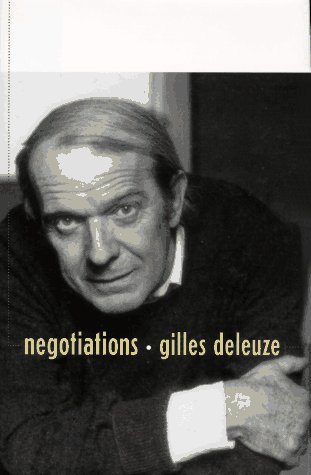European Perspectives
1 total work
Part autobiography, part interview, and part essay, this text traces the intellectual journey of a man often acclaimed as one of the most important philosophers in France. A guide to Deleuze by Deleuze, it explains the life and work of this figure in contemporary philosophy, tying together the strands of his long and prolific career. This guide sets forth the purposes that have united Deleuze's philosophical undertakings over the years. The inquiries that have characterized his work - including his theory of antipsychiatry, his notion of philosophy as critical practice, his theories about the role of the intellectual in the contemporary world and about the function of the image in cinema - are all explored here in a down-to-earth style that will be appreciated by novices and initiates of French theory alike. A traveller's guide to a mind that has altered the course of contemporary critical theory, it also discusses aspects of Deleuze's life that shed light on his philosophical writings. Deleuze tells of how he met and initiated his collaboration with Felix Guattari, a fruitful venture that lasted many years and produced some of his most important work.
Deleuze clarifies some of his own socio-political concerns, and offers a wide-ranging overview of the dangers inherent in social organizations and in the nature of power. He also offers his perspective on the work of other notable French philosophers, such as Foucault and Guattari, in relation to his own. For those not yet acquainted with the work of this philosopher, this book provides a point of entry to his complex theories. For those more familiar with Deleuze, this collection should be useful in broadening their understanding of this influential thinker's journey in search of knowledge.
Deleuze clarifies some of his own socio-political concerns, and offers a wide-ranging overview of the dangers inherent in social organizations and in the nature of power. He also offers his perspective on the work of other notable French philosophers, such as Foucault and Guattari, in relation to his own. For those not yet acquainted with the work of this philosopher, this book provides a point of entry to his complex theories. For those more familiar with Deleuze, this collection should be useful in broadening their understanding of this influential thinker's journey in search of knowledge.
